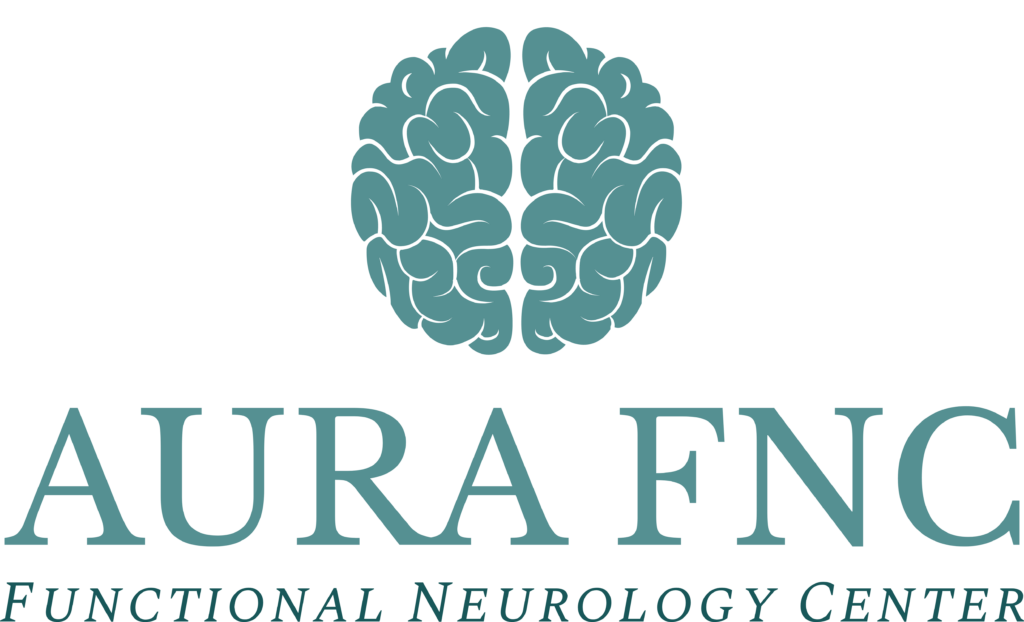Functional Nutrition
What is Functional Nutrition?
At Aura Functional Neurology Center (Aura FNC) we use functional nutrition to identify and address the root causes of neurological disorders, metabolic health, and other diseases, emphasizing preventive care and optimizing health. We use a patient-centered approach to understand the unique genetic, environmental, metabolic, hormonal, and lifestyle factors contributing to a patient’s brain health concerns. Functional nutrition treats from a natural route by making dietary and lifestyle changes, incorporating nutritional supplements, and other nutritional or dietary interventions designed to support the body’s natural healing processes.
While working alongside primary care providers, a wide range of diagnostic tools are used such as blood tests, stool analyses, and functional assessments, to evaluate a patient’s overall health and identify any imbalances or dysfunctions contributing to their symptoms. Based on the information in our report of findings, a patient receives a personalized treatment plan.
Functional nutrition seeks to empower patients to take an active role in their health and well-being and to support the body’s innate ability to heal and function optimally.

Dr. Diana Tyler DC, DACNB
Founder of Aura Functional Neurology Center with experience incorporating functional nutrition and dietary protocols within her patients' neurorehabilitation programs at the Aura FNC office located in Cumming, Georgia, right outside of Atlanta. Doctor of Chiropractic and Functional Neurologist. Graduate of Palmer College of Chiropractic and a Diplomate of the American Chiropractic Neurology Board.

Importance of functional nutrition in maintaining optimal brain health:
Functional Nutrition plays a crucial role in maintaining optimal health by acknowledging the intricate relationship between nutrition and brain function. Beyond merely preventing nutrient deficiencies, it focuses on promoting balance and addressing the root causes of health issues. Through personalized dietary interventions, Functional Nutrition seeks to optimize bodily functions, support the immune system, and contribute to the prevention of chronic diseases. At Aura FNC, we make sure each patient’s unique functional nutrition needs are met for what works best with their brain and body.
It takes an approach that views food as more than just a source of calories; it recognizes the profound impact of nutrients on brain functions and overall health. It emphasizes the therapeutic potential of food and nutritional supplementation, considering not only the nutritional content but also how individualized dietary choices can support and optimize neurological function.
Understanding Chronic Diseases and their Connection to Nutrition
Chronic diseases are long-term health conditions that often result from a combination of genetic, environmental, and lifestyle factors. Nutrition plays a pivotal role in both the prevention and management of chronic diseases.
The choices individuals make regarding their diet can influence risk factors such as inflammation, blood sugar instability, insulin resistance, and oxidative stress, all of which contribute to the development and progression of chronic illnesses. Understanding this connection allows for targeted nutritional interventions that can positively impact outcomes and enhance the overall quality of life for individuals dealing with chronic conditions.
Overview of chronic diseases
Chronic diseases encompass a broad category of health conditions that persist over an extended period and often require ongoing management. These can include cardiovascular diseases, diabetes, dysautonomia, connective tissue disorders, autoimmune disorders, and neurodegenerative conditions.
Unlike acute illnesses, chronic diseases often involve complex interactions between genetic predispositions, environmental factors, and lifestyle choices, making them multifaceted challenges that require comprehensive and personalized approaches to care.
Role of nutrition and management of chronic diseases
Nutrition plays a pivotal role in both preventing and managing chronic diseases. A well-balanced and nutrient-dense diet can help reduce inflammation, manage blood sugar levels, regulate cholesterol, and support overall immune function.
In the prevention stage, adopting a healthy dietary pattern can mitigate risk factors associated with the development of chronic conditions.
In the management phase, personalized nutrition interventions can complement medical treatments, alleviate symptoms, and enhance the overall quality of life for individuals living with chronic diseases.
Natural Approach: Health and Functional Nutrition
A holistic approach to health typically includes:
Patient-Centered Care:
Functional nutrition emphasizes a partnership between the patient and the healthcare provider. It recognizes the importance of understanding the individual’s health history, lifestyle, and goals to create a personalized and effective treatment plan.Holistic Perspective:
Instead of treating isolated symptoms or specific diseases, functional nutrition considers the interconnectedness of bodily systems. Practitioners aim to understand how different factors, such as nutrition, genetics, environment, and stress, influence overall health.Root Cause Analysis:
Functional nutrition seeks to identify and address the underlying causes of health issues. By addressing the root causes, practitioners aim to support the body’s natural healing processes and promote long-term well-being.Individualized Treatment Plans:
Treatment plans in functional nutrition are tailored to the individual. This may involve a combination of lifestyle interventions, dietary changes, nutritional supplements, and other holistic approaches based on the patient’s unique needs and circumstances.Preventive Care:
Functional nutrition places a strong emphasis on preventive healthcare. By addressing risk factors and promoting a proactive approach to health, practitioners aim to prevent the development of chronic diseases and promote overall well-being.Integrative Approach:
Functional nutrition integrates conventional practices with alternative and complementary therapies. It recognizes the value of combining evidence-based medicine with approaches such as nutrition, herbal medicine, and mind-body practices.Promotion of Health and Vitality:
Beyond treating illness, functional nutrition strives to enhance overall vitality and well-being. The goal is to optimize health, improve quality of life, and prevent future health issues.
Functional nutrition aligns seamlessly with this holistic perspective. It emphasizes personalized and comprehensive interventions that take into account an individual’s unique physiological, environmental, and lifestyle factors.
Designing Effective Functional Nutrition Programs for Your Health
Designing effective functional nutrition programs involves a comprehensive assessment of an individual’s health status, lifestyle, and specific health goals. Functional neurologists consider nutritional needs, potential deficiencies, and the impact of dietary choices on the individual’s overall health.
Our neurorehabilitation programs at Aura FNC are tailored to address specific concerns, incorporating dietary modifications, supplementation when necessary, and lifestyle recommendations to make your journey seamless. The goal is to create a sustainable and personalized plan that aligns with the holistic principles of health, supporting individuals in achieving and maintaining optimal well-being.
